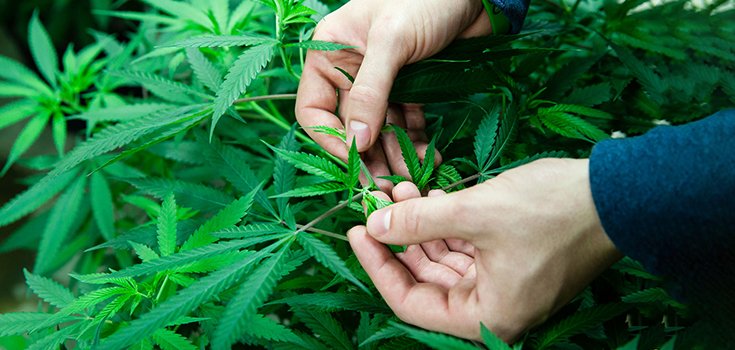Daily Dose of This Plant Could Reverse Age-Related Decline in the Brain

The findings of a Yahoo News/Marist poll show that people over the age of 69 generally don’t have positive views of marijuana. While the majority of younger Americans increasingly view marijuana as a legitimate medication and relatively acceptable recreational substance, the older crowd has been slower to adopt these views. In a twist of irony, a recent study shows that a daily dose of cannabis could reverse age-related brain decline in older people.
In the study, using mice, researcher Andreas Zimmer of the University of Bonn in Germany gave low doses of THC, the main psychoactive compound in marijuana, to young, mature, and aged mice. The young mice performed slightly worse on memory and learning tests – no one was shocked by that result. The rodents took longer to find a safe platform hidden in a water maze, and had a more difficult time recognizing another mouse they’d previously “met.” [1]
Before receiving THC, the mature and aged mice performed worse on the tests than the younger mice did. Once they received the compound, however, the elderly mice’s performance improved so much that their test scores matched those of their younger counterparts.
Zimmer says:
“The effects were very robust, very profound.”
The changes were also visible in the mice’s brains. The researchers noticed that the critters’ hippocampus – the area of the brain that is critical for learning and memory – had grown more synaptic spines, the points of contact for communication between neurons. Furthermore, radical changes were seen in the gene expression pattern in the hippocampi of the aged mice treated with THC, rendering their brains completely different from those of the young, untreated mice.
Zimmer explains:
“That is something we absolutely did not expect: the old animals [that received] THC looked most similar to the young, untreated control mice.”
The researchers have a theory as to why marijuana rejuvenates aging mice brains. Marijuana stimulates the endocannabinoid system, a biochemical pathway that slows with age in mice, humans, and other animals. But there is no guarantee that these results can be replicated in humans. [2]

David Nutt, the former government drugs adviser and professor of neuropsychopharmacology at Imperial College London, says:
“The key question now is does the same apply to humans? Clearly this needs to be tested, but it will not be possible in the UK due to the ridiculous restrictions on cannabis research occasioned by its being a schedule 1 drug.”
Related: 4 Studies Proving That Marijuana Can Treat Brain Cancer
Michael Bloomfield, a clinical lecturer in psychiatry at University College London, notes:
“What is particularly exciting about this research is that it opens up a whole new chemical system, the endocannabinoid system, as a potential target for new avenues of research, which could include illnesses like dementia. However, we are still in very early days and further research is needed.”

Cannabis hasn’t been intensely studied for medical purposes for very long, and it’s going to be tricky teasing out details, like how much of a dose is considered ideal. According to Bloomfield, THC sometimes has the opposite of the desired effect on people, depending on the dose, the patient’s age, and how often it is administered.
“This means that the possibility of doctors potentially prescribing cannabis, THC or similar compounds for memory problems in older people is still a long way off.”
So, it will likely be years before doctors are able to accurately prescribe marijuana for aging brains, but it’s an exciting possibility that could make the Golden Years much happier for senior citizens.
Andreas Bilkei-Gorzo, a researcher at the University of Bonn, is hopeful that marijuana can help people squeeze more years out of their life. [3]
“If we can rejuvenate the brain so that everybody gets five to 10 more years without needing extra care then that is more than we could have imagined.”
The study is published in the journal Nature.
Sources:
[2] The Guardian
[3] Daily Caller
